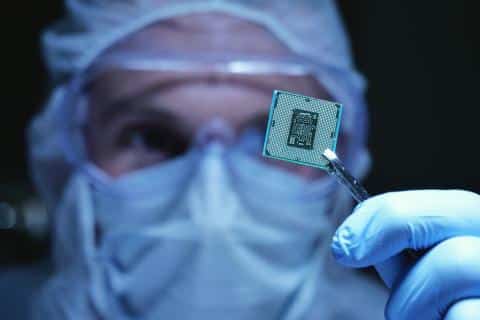Newsletter Signup - Under Article / In Page
"*" indicates required fields
Finnish immunotherapy company Valo Therapeutics Oy (ValoTx) has obtained exclusive licensing of intellectual property rights (IPR) from the University of Helsinki, Finland, for the institution’s PeptiCHIP technology.
Following further validation by ValoTx, and the achievement of specific milestones, the IPR will transfer in full to the company.
Valo said the deal will enable the rapid identification of tumor antigens for the development of new cancer immunotherapies using Valo’s existing technologies and opens the possibility for a tumor specific personalized approach in the future.
In addition, due to the advantages PeptiCHIP offers in comparison to existing antigen identification approaches, ValoTx expects to be able to commercialize the technology through creating a revenue-generating business unit.
Microfluidic chip
Paul Higham, CEO of ValoTx, said: “Precisely knowing the antigen profile of a tumor is crucial in developing new and effective immunotherapies in the treatment of cancer and particularly so when developing a personalized approach. PeptiCHIP enables us to identify these antigens faster than existing technologies and, in combination with our lead delivery platform, PeptiCRAd, we see significant potential for the development of personalized cancer immunotherapies across a wide range of cancers both for our partners and in-house programs.”
The PeptiCHIP technology consists of a microfluidic chip for identification of neoantigens, coupled with a software algorithm that identifies immunogenic peptides. Together, the device and software form an easy-to-use lab tool that enables the fast and accurate identification of tumor antigen profiles.
Sari Pesonen, CSO of ValoTx, said: “This is another successful IP acquisition from our long-standing innovation partnership with the University of Helsinki. PeptiCHIP technology opens new avenues for partnerships and our in-house programs focused on new and personalized immunotherapies for the treatment of cancer.”
The PeptiCHIP technology is expected to facilitate neoantigen identification at a lower cost and requiring less tumor material compared to current methods. This should lead to faster tumor antigen identification in standard biopsy clinical workflows.
Oncology R&D trends and breakthrough innovations







